As I first entered the Little Earth housing complex, I had no idea what to expect. Walking with my notebook pressed hard against my chest, I began to wander through the miniature streets that make up the complex, searching for my destination.
Before even opening the chain-link gate to the property, half a dozen people on the patio already knew who I was, and I was thrown full force into a whirl of introductions. Sisters, brothers, cousins, mothers, uncles, and friends — I had been introduced to the family of Leona Flores.
In 1973, Little Earth was the first urban housing complex created with preference for Native American residence, and was built to stand as an affordable housing option in South Minneapolis. Flores has lived in Little Earth her entire life, with the recent addition of her daughter, Cassandra Holmes. These two women, along with their extensive family and friends, have been working to support each other through a tough couple of weeks, coping with the recent death of Holmes’ son, South sophomore Trinidad Flores.
Holmes and I sat down by the fire that was burning, comforting in the cold evening air, as every few minutes more family and friends came and left. Tony Jack, often referred to as Uncle, sat to the left of the fire, poking holes in the tinfoil that would be used to barbecue the brats and hotdogs we’d have for dinner.
In the short amount of time that had passed since I’d arrived, it was clear just how many stories and memories this family had to share about Trinidad, more commonly known as Trini.
Holmes began to tell me about Trini’s dog, which she referred to as a service dog by the name of Beaner. A few minutes later a tiny caramel colored creature, resembling a chihuahua, came scampering outside to sit right beside Holmes.
“She’s sick without him,” she said, about the unusually close bond Beaner had with Trini.
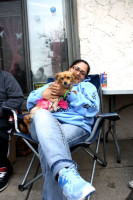
Holmes explained that they would have to bring Beaner to the hospital after Trini’s surgeries, because without him she would refuse to eat, and would even carry around one of his dirty socks while he was away. “He trained her when he couldn’t do much,” explained Holmes, holding Beaner in her arms.
Diagnosed at age fourteen, Trini lived with dilated cardiomyopathy, a heart disease that weakens and enlarges the heart. Undergoing a total of three surgeries, Trini was given a left ventricular assist device or LVAD, which can be used to help treat certain heart diseases.
Trini waited on the transplant list for approximately two years and nine months.
“I saw him briefly before he left for the hospital that morning, and he was all excited because he finally had that heart,” said Joe Kingbird, coordinator of the All Nations program and teacher to Trinidad. “He had been waiting on the transplant list for quite some time, and he thought and I thought, that everything was going to be just routine.”
Holmes and her sister, Rosemarie Roberts, proceeded to show me a multitude of photos they had of Trini, and even tattoos in his memory. “I had him when I was seventeen, that was my world right there,” said Holmes, pointing out some of her favorites.
Once the food was prepared, person after person crammed into the bright pink kitchen to grab their share. Holmes began to ask around if someone had prepared a plate for Trini, a Native tradition for someone that has recently passed away. When Holmes sat down to eat, she set down a large plastic jug of water right beside her, which she explained was something Trini used to drink water from.
Among the people preparing their meal was Holmes’ second son, Daniel, referred to by his mother as “Baby D.” Holmes called him over to remind him that it was time to take his medication. Daniel takes this medication to help treat his dilated cardiomyopathy, the same heart disease as his brother Trinidad.
After dinner I gathered with Flores and Holmes in their living room, photos of every sort hanging on the walls. Originally just the three of us, we were soon joined by more family and friends that wished to take part in the discussion. This included Holmes’ father, Bob Lilienfeld, and Trini’s close friends Francisco and Emilio Reyes, and Charlie Waye, who are all students at South.
“This house is our house,” explained Francisco Reyes, with Flores adding that its not at all unusual for people to come and go from her house as they please.
“The boys are here, they come every day,” said Flores, motioning to the three boys that had just walked in. “Mere words cannot express the loss we’re going through.”
In addition to the vast impact Trini has left on his family and friends, Flores added that he had an important role within the Little Earth community. “Everyplace I go Trini knew everybody,” explained Flores. “It’s big for Little Earth. They all loved him.”
“When we walked around he knew every adult and every kid, but every adult that he knew, they thought of him as a leader,” said Emilio Reyes, who has grown up with Trini like a brother. “Bill Ziegler, the president of Little Earth, knew who he was, and they all knew that he was one of the only leaders that stayed doing what he did.”
“The elders, the women, they have a ceremony every full moon of the month and Trini was their fire keeper,” said Francisco Reyes, explaining the various roles Trini had within the community. “Trini taught us last month how to set it up and how to start the fire and we had plans for this month to go help him do it, but now he’s not here so we had to take that step and work on building the fire ourselves.”
In agreement with the boys, Bob added, “I could see him really doing some big things for the community when he grew up. Helping people, helping kids, keeping productivity, and getting lives together.”
Kingbird explained that just after Trini’s death, the students of All Nations came together to support his family at a 24 hour wake, an important ceremony in Native culture to spend time with the body and reflect. “The students themselves pretty much attended on their own,” said Kingbird. “On hearing about his passing many students just left the school to go down there and spend time with the family.”
Kingbird explained that although All Nations was devastated by the loss, it is important to move forward. “We are going to continue with our circle time on Monday and continue with our smudging. It’s a time for us to be together, to say prayers,” said Kingbird. “As Native people, it’s okay to grieve but eventually we do have to move forward, and I know that Trini would want us to do that.”
“It hasn’t hit me yet,” said sophomore Danielle Pineiro. “I feel empty.”
Pineiro had been dating Trini since the start of this school year, and has also been deeply saddened by the loss. “We had our whole future planned,” she explained.
“This is the promise ring he gave me,” said Pineiro, pointing to the ring on her finger. “It was given to me in front of his casket at the funeral. I was like, “Oh my god he actually got a ring,’ because we would just joke around about it.”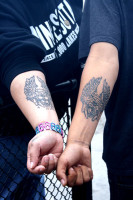
But like her fellow All Nations students, Pineiro knows that she must return to school in order to move forward from the loss.
As for Holmes and her family, moving on feels like a daunting task. “We’re trying to take baby steps, because it’s hard to think of the future without him,” said Holmes, Flores adding, “Yeah, baby steps, that’s all we can do right now.”
“What’s important is to keep moving Trini’s name forward, and the positive things he was active in and believed in,” explained Flores.
Both Holmes and Francisco Reyes have been working together on a project called “Love Trini,” which was created to do just that.
One component of the project is a toy drive, which Francisco Reyes is bringing to South on three Fridays, from the 17th through the 31st of May. All toys donated are planned to go to the kids staying at the Intensive Care Unit in which Trini stayed.
“I hope to get this going so it’s continual. When I’m gone, have people from the All Nations program take charge in it and keep that going as well,” said Francisco Reyes about the drive.
Holmes added that there is also an open birthday celebration for Trini on June 1st at Cedar Field. All money donated will go to fund the Little Earth sports teams, including “The Red Bears,” the baseball team renamed after Trini’s native name. Despite being on the same night as South’s graduation, Holmes explained that students are still encouraged to come afterwards.
“It’s just brought everybody closer together,” said Holmes. “They’re helping us because they want us to succeed in what we’re doing for Trinidad’s name, and they want people to remember Trinidad like we do.”
They proceeded to show me pictures of Trini they kept on their phones, as Bob said with Beaner on his lap, “This dog must feel that we’re talking about him, she’s never this mellow.”
“I think that if people would spend a little more time inside of Little Earth, and stop looking at it as a housing project, I think that they would find out that we’re just like any community,” said Flores. Emilio Reyes added that Little Earth is often misunderstood by people that are unfamiliar with it.
“In death I think Trini’s still bringing people together, doing more things,” said Flores. “All in all we’re a community, and we strive to help each other in any way that we can.”

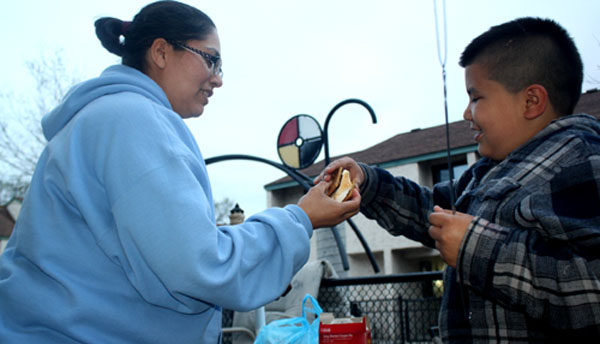


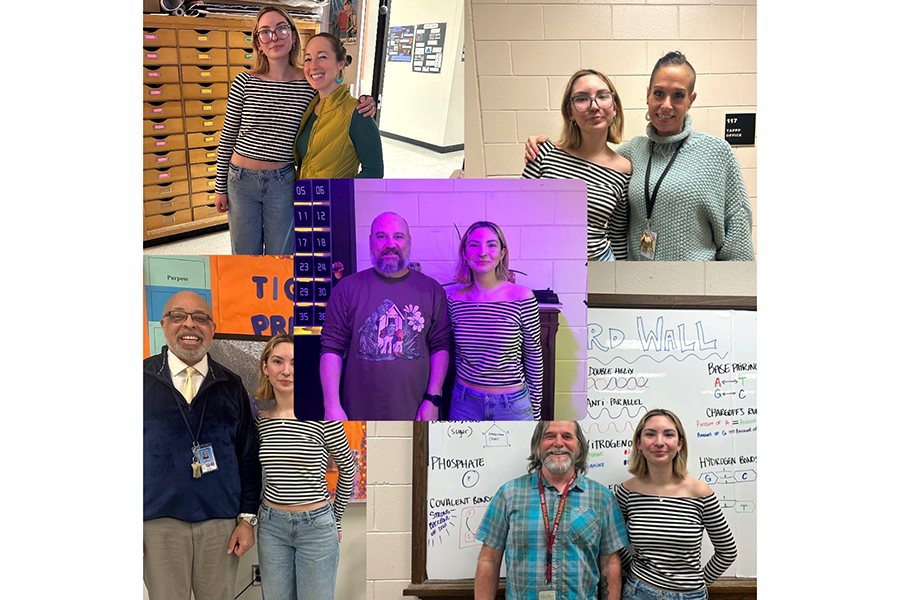
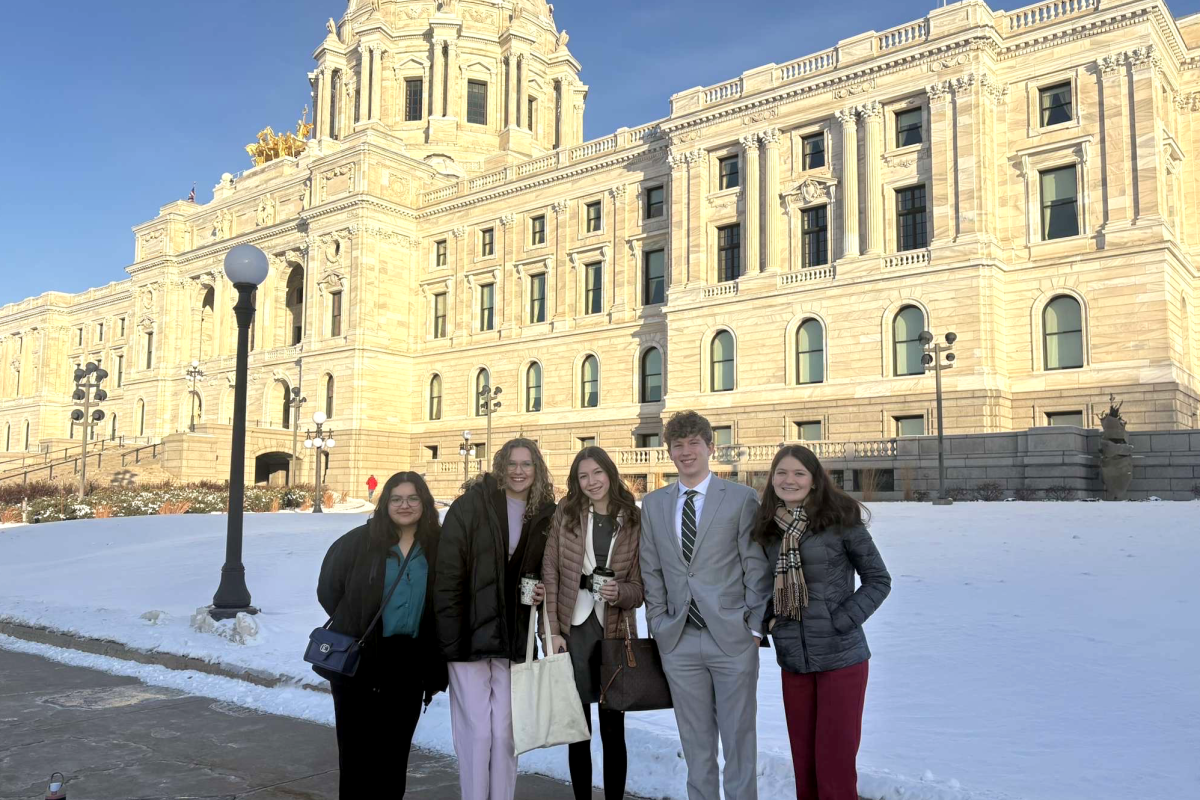

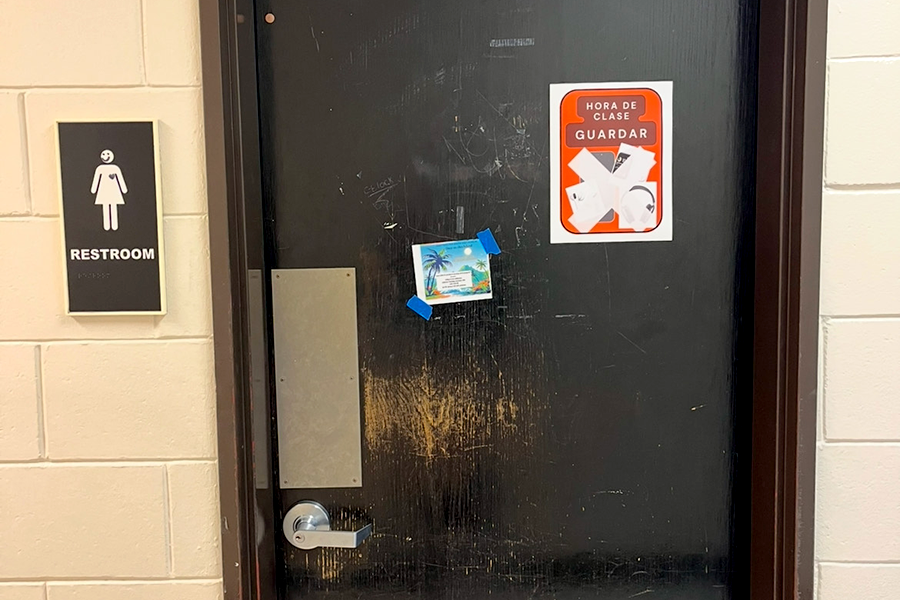






Felicity English • Apr 10, 2014 at 4:21 pm
I never got to see trini but maybe I seen once I don’t if I did… but I found out my self that trini passed….. none of my family member told me what happen…. but I miss even if i barely knew him…. but yeah.. I started crying really hard… by my self in my room when I found out :/ ….
~ Felicity English